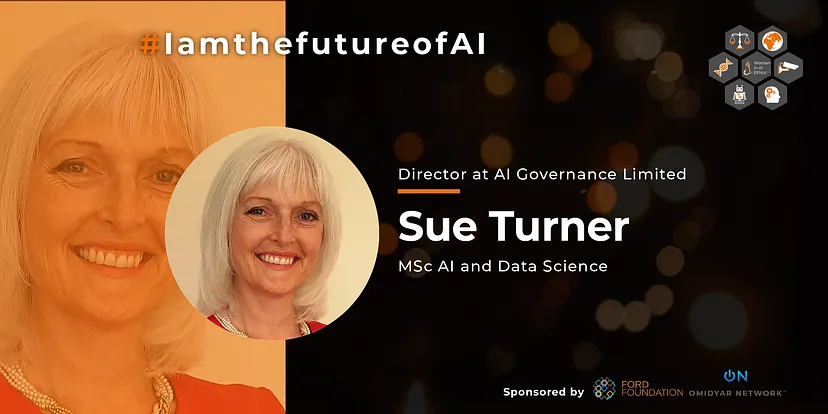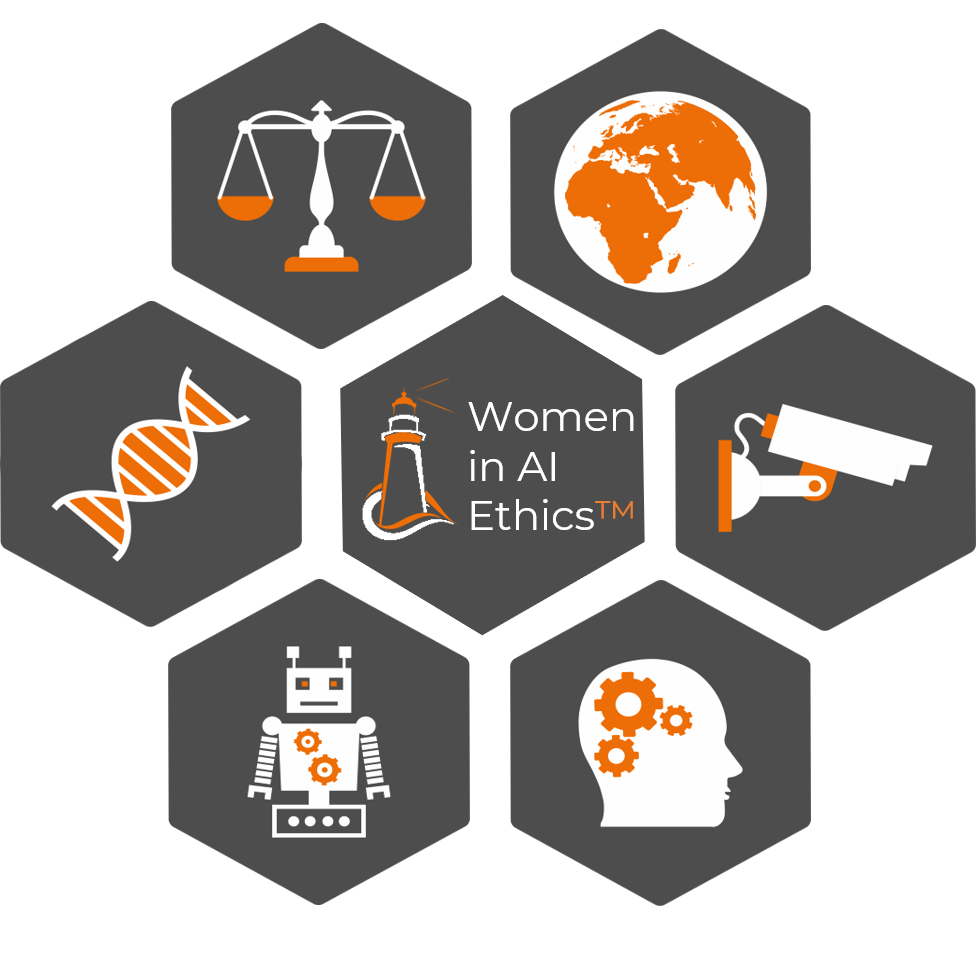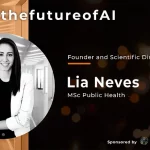When you look at the boards of the world’s most prestigious AI companies, you quickly realize that there are very few women and people of color. This is a tough reality for the AI industry to come to terms with. One woman, through her expertise in AI and data governance inspires organizations with wisdom and integrity, is challenging the norms.
In today’s conversation, Sue Turner, Director at AI Governance Limited shares her motivation behind joining the world of AI, interesting facts about her current role including the most common issues she’s faced with, her views on diversity and its relationship with AI, plus so much more.
 This interview is part of Women in AI Ethics (WAIE)’s “I am the future of AI” campaign launched with support from the Ford Foundation and Omidyar Network to showcase multidisciplinary talent in this space by featuring career journeys and work of women as well as non-binary folks from diverse backgrounds building the future of AI. By raising awareness about the different pathways into AI and making it more accessible, this campaign aspires to inspire participation from historically underrepresented groups for a more equitable and ethical tech future.
This interview is part of Women in AI Ethics (WAIE)’s “I am the future of AI” campaign launched with support from the Ford Foundation and Omidyar Network to showcase multidisciplinary talent in this space by featuring career journeys and work of women as well as non-binary folks from diverse backgrounds building the future of AI. By raising awareness about the different pathways into AI and making it more accessible, this campaign aspires to inspire participation from historically underrepresented groups for a more equitable and ethical tech future.
Can you share an incident that inspired you to join this space?
For five years I was CEO of one of the UK’s oldest and largest community foundations. During that time we changed our focus to put the spotlight on disadvantaged communities and, by doing so, raised an additional £27 million and gave £5 million a year in grants to support our communities. I wanted to be able to analyse our impact, particularly through exploring the unstructured text in hundreds of annual feedback reports, and I’d heard that Natural Language Processing could uncover hidden insights for us. But nobody was able to tell me how to make this work in my organisation. This motivated me to study artificial intelligence and find ways to unleash its power to benefit everyone — not just the technological elite.
How did you land your current role?
Until 2020 my career centred on leadership roles in dynamic private businesses and not-for-profits with Marketing, Communications and Government Relations as my specialisms. I established AI Governance Limited whilst studying MSc AI & Data Science with the mission to inspire as many organisations as possible to use AI with wisdom and integrity. From many of my Board roles I realised that most business leaders didn’t understand how to harness the power of AI and that, without rapidly increasing their knowledge, many would make mistakes that could harm society. I’m passionate about helping people to improve their opportunities so it’s exciting now to be in a position to help bosses avoid harmful errors and to promote the interests of disadvantaged people too.
What kind of issues in AI do you tackle in your day-to-day work?
I help clients to explore the opportunities to use AI in their organisations and spot the potential pitfalls of doing so. We start by looking at what they would ideally like to predict, personalise or automate and then examine what data the client has — for example what’s its provenance? Do they have the necessary permissions to use it in the way they would like to? Is there bias built in to the data? This often exposes the need for Board development so leaders can take informed decisions on investment opportunities as well as the myriad ethical decisions that should never be devolved from Board level. I advocate involving diverse stakeholders from the outset as no organisation will hold all the answers and expertise.
If you have a non-traditional or non-technical background, what barriers did you encounter and how did you overcome them?
I guess that being a woman aged over 50 with no science, technology, engineering or maths (STEM) background definitely puts me in the “non-traditional” camp! The biggest barrier was finding a Masters degree that would take someone without a STEM degree. Fortunately the UK Government backed 19 universities to create conversion courses to bring diverse people into AI and Data Science and I was delighted to be offered a place in the first cohort at the University of Hull. Stepping back from working full-time at Board level meant a big drop in income but my family were supportive and agreed that we would manage with less so that I could make this major career pivot.
Why is more diversity — gender, race, orientation, socio-economic background, other — in the AI ethics space important?
We’ve seen many examples that show that if teams developing or using AI tools are from a narrow sector of society they cannot be cognisant of all the potential impacts of the AI might have. That means they make mistakes that can impact negatively on society, damage companies’ reputations and waste time and resources too. By involving people from diverse backgrounds and perspectives from the earliest stages of thinking about using AI-powered tools organisations gain a huge amount. I’ve seen businesses change the way they talk about their services once they find out how to tune in to the needs of disadvantaged communities. I’ve also seen management get an enhanced relationship with trades unions because they build trust around what they will — and will not — use AI for in the organisation.
What is your advice to those from non-traditional backgrounds who want to do meaningful work in this space on how to overcome barriers like tech bro culture, lack of ethical funding/opportunities, etc.?
Those of us from non-traditional backgrounds have to go further to establish our credibility with funders, clients and partners. So having a Masters degree certainly helps — here’s a link to the conversion course programme that helped get me started.
Organisers of online and in person events in this space are increasingly keen to ensure their speakers and panels are diverse, so if you are comfortable speaking to audiences I encourage you to find the message you want to promulgate and put yourself forward as a speaker.
Sue Turner is dedicated to using her expertise in AI and data governance and ethics to inspire organizations to use AI with wisdom and integrity. One of the first 14 people globally to be accredited in the Foundations of Independent Audit of AI systems, and with both a Law degree and an MSc in Artificial Intelligence and Data Science, she established AI Governance Limited in 2020 to advise businesses and policymakers on pragmatic AI, data ethics and governance issues and making a positive societal impact.
She is Board Chair and Non-Executive Director for purpose-driven businesses in the logistics and financial services sectors and is a Mentor on the Turing Institute’s Skills Policy Awards. Her career spans entrepreneurial private businesses and not-for-profit organizations where she has led significant organizational growth, raised £27 million for charity, and collaborated to shift power to help people improve their prospects. She was awarded the OBE in 2021 for Services to Social Justice.


